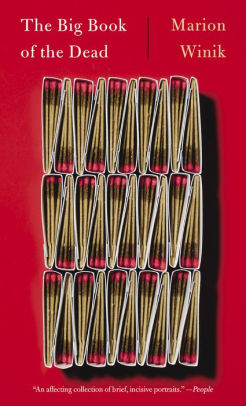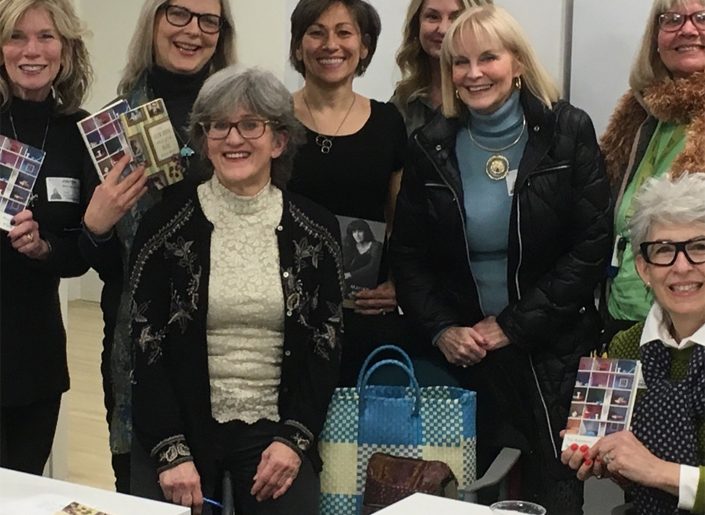It is fun to find a book that is different from everything you’ve ever read. One where it’s so hard to find the best words to describe it to others – you end up saying, “you just have to read it.”

Baltimore Book of the Dead, by Marion Winik, is one of those books. Don’t let the title fool you – nothing morbid about this book. Baltimore Book of the Dead is a charming collection of 400-word essays about people Marion has known personally or who have affected her life. The only thing they have in common is that they are all dead. Some are famous, a few are recognizable to Baltimoreans, others could be anyone’s eccentric relative or ex. All shaped her, and her essays are poignant memories of relationships. The book is best read and absorbed a little at a time – it makes you start thinking about the cultural icons, and the people you have known personally, who have influenced you in both good and bad ways. And how one memory, one encounter, can change your view of life.
Marion is a prolific writer, starting with her first book, “First Comes Love,” which is a hoot about her relationship with her first husband, a gay bartender from New Orleans. To say the least, their life was not boring. She has a lot to say about writing, and since the Women’s Daily Post book club and Writer’s Group are full of both aspirational and published writers, we asked her to share some advice. She gave us her dozen best tips for writing essays and they are great:
A dozen thoughts about writing personal essays:
1. If you are scared to put down even one word about the subject, you have picked the right subject.
2. There is nothing like a good first sentence — but you don’t have to write it first. Don’t linger too long on the beginning, you can go back to it later.
3. You don’t have to start at the beginning of the story. Sometimes it works to start at the end, then flash back to the beginning, then circle back to where you started. Also applies to starting in the middle, then working back there and going past it.
4. Please don’t be afraid to describe how people look. We want to see them!
5. Don’t “use quotes” — capture voices. Don’t bother having people saying things like Hello and Thank you, etc. One or two good sentences can be better than a whole conversation.
6. Tell the story out loud to someone to find its shape, see what parts are funny, see what questions they ask.
7. Read the story out loud after you’ve written it down as a part of the editing process. This will help you find its weaknesses. If you are bored reading it, imagine how your readers will feel.
8. Try to leave a question unanswered until the end.
9. When in doubt, end with an image. For other ideas, get a copy of an essay anthology and go through reading only the last paragraphs
10. Read a few paragraphs of the prose of a writer you like right before you begin. Best out loud. Poetry can also be great.
11. You’ve heard it before, and you’ll hear it again — Show don’t tell. Okay, you can tell a little, but you gotta show.
12. Know thy writer self. Treat him or her with cunning and care. Set achievable goals and reward yourself when you hit them. Work at the time of day when you can be most productive.
Where to find Marion:
Marion is a longtime commentator on NPR’s All Things Considered.
Her column at BaltimoreFishbowl.com has received the Best Column and Best Humorist awards from Baltimore Magazine.
Marion is the host of The Weekly Reader radio show and podcast, based at WYPR, The Weekly Reader airs on Wednesdays at 2:30, and is available on all podcast apps. She co-hosts The Weekly Reader book club with Ivy Bookshop.

Her newest book, Big Book of the Dead, is coming out this fall from Counterpoint.




